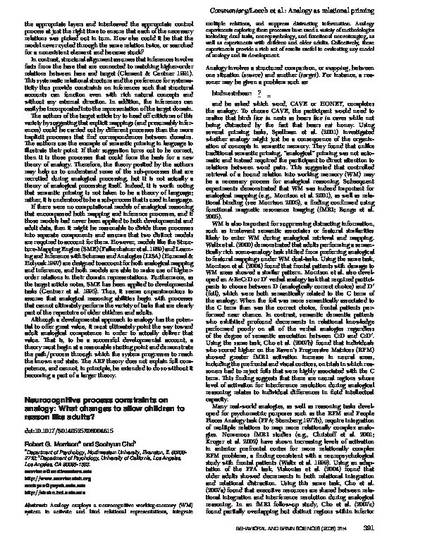
Article
Neurocognitive Process Constraints on Analogy: What Changes to Allow Children to Reason like Adults?
Behavioral and Brain Sciences
Document Type
Article
Publication Date
8-1-2008
Disciplines
Abstract
Analogy employs a neurocognitive working-memory (WM) system to activate and bind relational representations, integrate multiple relations, and suppress distracting information. Analogy experiments exploring these processes have used a variety of methodologies including dual tasks, neuropsychology, and functional neuroimaging, as well as experiments with children and older adults. Collectively, these experiments provide a rich set of results useful in evaluating any model of analogy and its development.
Creative Commons License
Creative Commons Attribution-Noncommercial-No Derivative Works 3.0
Copyright Statement
© 2008, Cambridge University Press.
Citation Information
Morrison, R.G. & Soohyun Cho. (2008). "Neurocognitive process constraints on analogy: What changes to allow children to reason like adults?" Behavioral and Brain Sciences, 31(4): 391-392. Available at http://dx.doi.org/10.1017/S0140525X08004615

Author Posting © Cambridge University Press, 2008. This article is posted here by permission of Cambridge University Press, for personal use, not for redistribution. The article was published in Behavioral and Brain Sciences, Volume 31, Issue 4, August 2008, http://dx.doi.org/10.1017/S0140525X08004615.